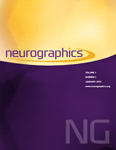
Imaging Evaluation of the Pediatric Craniovertebral Junction
The craniovertebral junction is imaged in both head and cervical spine imaging. An understanding of the normal morphometric appearance and common anatomic variants of this region is important for making correct diagnoses and avoiding misinterpretation, e.g., differentiating trauma from
congenital variants. We describe a practical approach to evaluating the pediatric craniovertebral junction and recognizing common variants using annotated images. Pathology of the craniovertebral junction, including platybasia, basilar invagination, and traumatic injury, is illustrated, and
syndromic associations of these findings are reviewed.
Learning Objective: Review normal and variant anatomy of the pediatric craniovertebral junction and describe useful measurements for evaluating for traumatic and nontraumatic conditions in children.
Learning Objective: Review normal and variant anatomy of the pediatric craniovertebral junction and describe useful measurements for evaluating for traumatic and nontraumatic conditions in children.
Keywords: ADI = atlantodental interval; CVJ = craniovertebral junction
Document Type: Research Article
Publication date: 01 December 2019
- Access Key
- Free content
- Partial Free content
- New content
- Open access content
- Partial Open access content
- Subscribed content
- Partial Subscribed content
- Free trial content